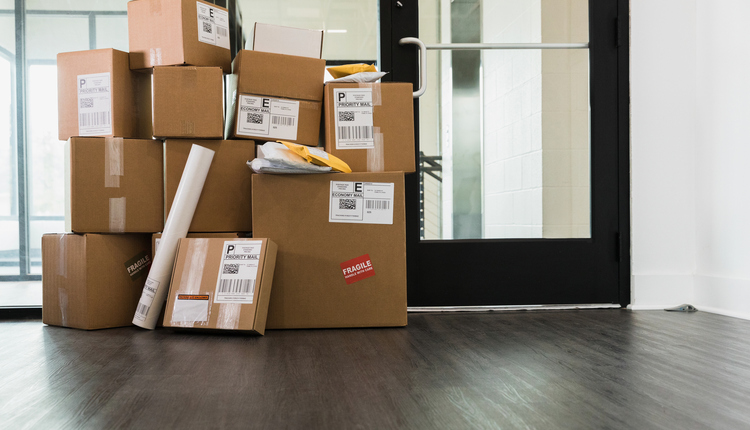The United States Postal Service is facing unprecedented challenges as the new century unfolds. Postal Service projections indicate that First Class mail will decline at an average annual rate of 2.5% from 2003 to 2008. That would represent a significant loss of revenue and greatly impact financial and operational performance. As an example of the changing marketplace, banks and bill presentment companies are aggressively marketing online services for paying monthly bills. As consumers embrace this new technology for money transfer, the demand for First Class stamps decreases and the USPS handles fewer of the easy-to-sort envelopes with preprinted addresses and barcodes. That�s not a pretty picture if you�re the Postmaster General.
So where does all this lead the Postal Service? Like the rest of the shipping world, the USPS is following the e-trail! The Postal Service is betting that the massive reach of its network � postal carriers service 130 million homes six days a week � will give it an Internet edge. But the real question seems to be, what is the best way to service its customers.
The USPS recently announced interest in forming an alliance with FedEx. Under the plan, FedEx would deliver some Express Mail � and, perhaps, even Priority Mail � thereby becoming a critical part of the postal delivery system. In return, the USPS would deliver ground shipments for FedEx in high cost, rural areas. And there is even talk about placing FedEx drop boxes in 38,000 retail postal outlets around the country. How USPS and FedEx would differentiate their services must still be resolved. Nonetheless, the prospects of a powerful alliance are obvious. But the Postal Service�s Board of Governors must first approve the plan, and you can be sure that UPS management and well-paid lobbyists are hard at work presenting their side of the story. It should be a major tug of war!
Alliances with shipping companies are not new propositions for the Postal Service. It already has limited delivery alliances with Airborne, DHL and Emery. None of these relationships come close to the planned arrangement with FedEx. Airborne makes some residential deliveries through the Postal Service, while DHL and the USPS jointly offer two-day service between certain European and US cities. Emery helps transport Priority Mail, but sued the USPS in April for breach of contract. It seems that Emery is losing money performing the service.
Nonetheless, one can�t help but believe that the legislatively bound USPS is watching with envy as Germany�s Deutsche Post evolves into a world power. No doubt the USPS admires the company�s playbook. Deutsche Post has significantly increased its presence in the global air transport market through a series of alliances, such as Lufthansa Cargo and acquisitions, such as the parcel division of Nedlloyd and the giant freight forwarder Danzas. And the Deutsche Post also owns a 25% interest in DHL. These partnerships are designed to form a worldwide network to take on UPS and FedEx in the area of time-definite air transport of light parcels and heavy freight. There is no doubt about it, transportation�s new indisputable Big Three are: UPS, FedEx and Deutsche Post. And it appears that the USPS is trying hard to get into the game. The USPS views FedEx as someone who can bring it to the table.
The landscape of domestic and global transportation is rapidly changing. The USPS is faced with the prospect of a shrinking First Class mail market and a less-than-competitive parcel service. And it is trying to re-position itself. Only time will tell if the USPS followed the right trail. It�s no longer �business as usual� for the Postmaster General!





